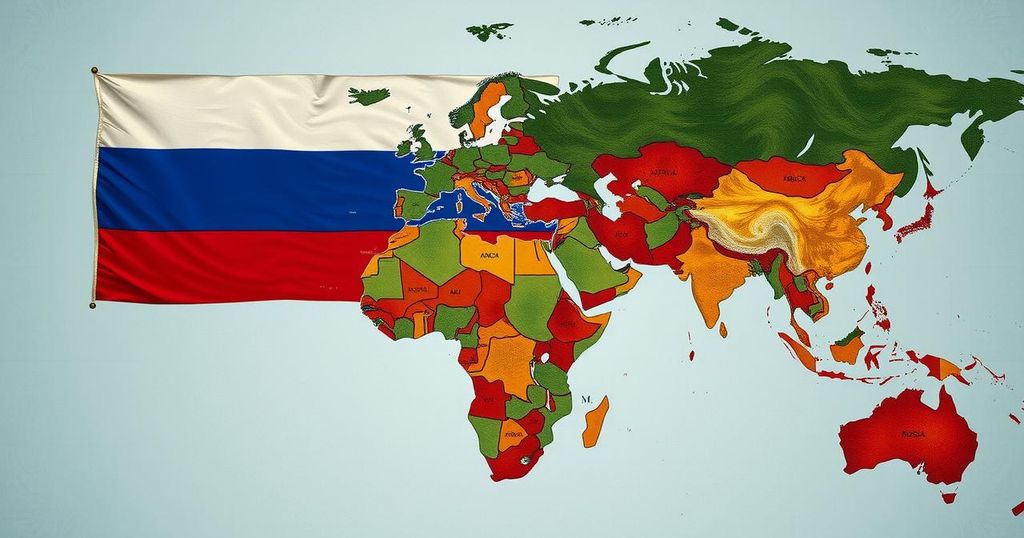An Examination of Russia’s Diminished Influence in Africa
Russia’s presence in Africa, characterized by the use of mercenaries and military interventions, is collapsing under the weight of operational failures and increased civilian violence. The recent setbacks in nations like Mali signal a major decline in influence, with countries pivoting towards partners like Turkey. Russia’s inability to provide significant economic support or humanitarian aid further exacerbates its precarious position on the continent, revealing the disparity between Russia’s ambitions and its actual capabilities.
Russia’s influence in Africa is markedly overstated, with their mercenaries overstretched amid ongoing challenges in Syria and other commitments. The recent ambush of Russian soldiers in Mali exemplifies the reality of Russia’s precarious position on the continent, conflicting sharply with the Kremlin’s narratives of power and liberation. While Moscow has sought to leverage historical Soviet support to regain influence, its operations primarily serve its own geopolitical interests, often resulting in dire consequences for African civilians. In Mali, Russian intervention initially appeared promising but soon devolved into escalating violence and civilian suffering as foreign troops struggled against local insurgencies.
The Wagner Group, responsible for atrocities and poorly equipped for the challenges they face, highlights the hollow nature of Russia’s claims to be a great power in Africa. Efforts to establish a foothold in nations like Burkina Faso, Niger, and the Central African Republic have been undermined by logistical difficulties and high casualties, foreshadowing a decline in Russian influence.
With the recent setbacks, including the failure of Russian forces in northern Mali and an apparent pivot by local regimes towards other partners, like Turkey, Russia’s standing in Africa appears increasingly tenuous. The Kremlin’s lack of substantial economic engagement—evident in its inability to rival Western investment—further diminishes its capacity to project power. Overall, the image of a formidable Russian presence in Africa is a facade built on strategic opportunism and propagandistic endeavors that do not reflect the harsh realities on the ground.
The geopolitical landscape in Africa has been influenced significantly by external powers, with Russia attempting to assert its influence through military contracts and mercenary deployments. After the fall of the Soviet Union, Russia has sought to rebuild this influence, particularly through the Wagner Group, which has operated in various African nations. However, Russia’s operations have often faced challenges, including logistical issues, lack of resources, and increasing opposition from local populations and governments. Symbolic military victories have not translated into lasting influence or support, revealing the weak foundation of Russia’s ambitions in Africa.
In summary, Russia’s aspirations to be recognized as a great power in Africa are noticeably undermined by several factors, including overstretched military resources, significant operational failures, and a disconnect between the Kremlin’s narratives and the realities faced by the African populace. As local governments increasingly seek alternatives to Russian support, it underscores a shift in the strategic allegiances within the continent. The looming challenges in Syria and other engagements will likely continue to impact Russia’s standing in Africa, where its influence appears increasingly fragile.
Original Source: foreignpolicy.com




Post Comment